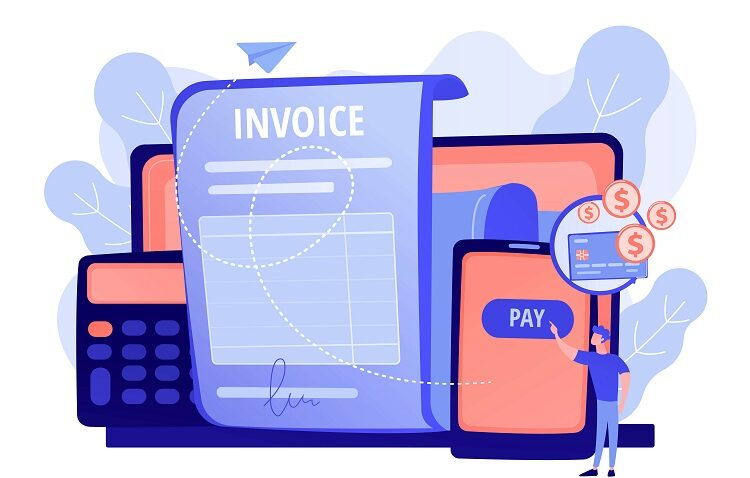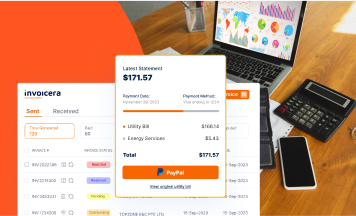When you start up your business, there are many startup mistakes to consider before setting out to fulfill your dream of becoming an entrepreneur. Prepare yourself financially to start right and avoid the expenses of starting and running your own business.
When putting together your business plan, it’s essential to plan for these expenses, as it could affect whether your business succeeds or fails.
You need to be aware of many expenses before even starting your business, and some of them can be enormous.
Here are eight startup mistakes or expenses that can ruin your startup if unprepared.
Top 8 Huge Expenses That Can Ruin Your Startup
 1. Equipment
1. Equipment
Startups require a lot of things, from desks to lightbulbs. It can also require expensive stuff like computers, camera equipment, and physical office space. And, unless you’re working out of your home, you need to lease or buy equipment for employees.
Before purchasing any new office supplies or technology for your startup, think long and hard about whether it’s necessary—because it almost certainly is not—and discuss it with your financial partner first.
2. Office Space
One of your most significant startup mistakes or expenses will be office space. This one cost can quickly go from negligible to outrageous, so you must take a realistic look at what you need and where you can get it for as little as possible. Often, coworking spaces will offer flexible month-to-month contracts and may even have cheap desks available when they aren’t fully booked.
Of course, if you’re only looking for an office space part-time, per month options might not always be an option. In that case, local college dormitories or shared suites with other startups might be your best bet—just ask about any additional fees they charge upfront before signing a contract!
3. Paper Invoices
For a startup, every penny counts. That’s why paper invoices can significantly increase your expense. You have to pay for the material, but you also have to pay someone to process the invoice. And if you’re not careful, those invoices can wind up costing you a lot more money than you ever anticipated.
One of the biggest problems with paper invoices is that they lack privacy. If you’re dealing with sensitive information – like credit card numbers or medical records – then the chances are good that someone will read your invoices. That’s an enormous security risk, and it could wind up costing your startup.
4. Marketing
A successful marketing campaign can be a considerable expense for startups, but there are ways to reduce that cost like using campaign management.
One way to reduce the cost of marketing is to target your audience carefully. Identify who your ideal customer is and focus your efforts on reaching them. You can also save money by creating marketing materials, such as images, videos, website graphics, and print ads. For example, you can use an AI photo editor or video editor to create engaging and high-quality content. Quality videos will help you attract new customers and grow your startup. You can also use a poster template to create visually appealing and informative posters promoting your products and services.
Another way to save costs is by using social media platforms like Facebook, Twitter, and LinkedIn to market your product or service. These platforms are free to use and can be very effective in reaching many people.
When it comes to sales prospecting, consider hiring your first salesperson. They will help you reach out to potential customers, build relationships with them, and ultimately close deals. Your first salesperson should have the right skills and personality to fit into your startup culture and understand your product. Additionally, consider investing in training your salesperson to ensure they have the knowledge they need to represent your brand and close deals effectively.
Finally, consider hiring a freelance marketer or marketing agency to help you develop and execute your marketing plan.
Sign up to try the Invoicera for expense management for startups
5. Virtual Assistant
A virtual assistant can be a huge expense for a startup. It is important to note that most of them are not one-time hires because, many times, you will need their services more than once. If you go with virtual assistants, they can turn into a recurring expense.
For example, if your VA costs $20 per hour and you use them 10 hours per month, your monthly expenses are $200 (assuming there are no other costs). It may look like a small expense, but it can quickly become very expensive if they have multiple tasks on hand, and it’s not something that you can delay for later.
6. Insurance
Insurance can be a huge expense for startups. The good news is that there are several ways to offset this cost. One option is to secure funding from investors who will shoulder risks for a portion of ownership of the company. Another tactic is negotiating with suppliers and customers for extended payment terms or other forms of relief. And finally, many startups opt to self-insure by setting aside funds each month to cover potential risks.
Of course, every company’s situation is different, so it’s essential to work with an experienced insurance broker who can advise you on the best way to manage your particular risks. But, by following a proactive approach, you can ensure that your startup is well-protected without breaking the bank.
7. Advertising
Starting a business and promoting it in a way that leads to sales is one of the biggest challenges new businesses face. Advertising includes various marketing techniques to create brand awareness, build loyalty and create consumers. There are many types of advertising—from print ads and television commercials to billboards and Google AdWords, each of which requires different marketing strategies. Understanding how much you should spend on these various forms can help ensure your startup doesn’t go under before it ever takes off.
Each of these platforms can be a significant expense, and you’ll need to plan accordingly. Try starting with a small budget, then monitor its effectiveness. Knowing how much time you have until your product or service hits the market can also help determine what type of advertising will work best for your business—and when it should begin. In that matter, you may consider doing PPC advertising or implementing SEO tactics, using a keyword research tool, and increasing SEO visibility.
8. Taxes
As your business grows, you’ll need to take care of some potentially severe tax-related issues. Consult a tax professional to ensure you comply with federal and state tax laws and adequately record your transactions, but there are a few essential tips all startups should follow:
First, avoid keeping cash in your business bank account. It might seem convenient to keep a large buffer of money on hand in case of emergencies, but that’s a dangerous game. The IRS takes an interest in businesses that hold too much cash on hand for too long; if it decides you’re avoiding taxes, you could get some steep fines—or worse.
Use your business account to pay for company expenses and payroll. Any other money you deposit in your business bank accounts, such as personal income or investments, is a red flag to federal authorities and should be recorded in your accounts—and taxed accordingly. At least keep separate records that allow you to track how much money you’re moving between accounts each month. This will prevent any misunderstandings with tax officials later on.
How Can A Good Invoicing Software Save You From Unwanted Expenses
An excellent invoicing software can save a great deal of money for any startup. By automating issuing invoices and tracking payments, a startup can avoid the unnecessary expenses associated with maintaining an in-house accounting department.
Automating billing saves your time and invests that time in growing the business. In addition, proper invoicing software will help ensure that all payments are made on time, reducing the amount of late fees and interest payments that a startup would otherwise have to pay.
Additionally, good accounts payable and receivable software like Invoicera will help you track your expenses and budget more effectively. By having all your billing information organized in one place, you can see where your business is spending its money and make adjustments as needed. This can help keep your business on track financially and prevent costly startup mistakes.
Invoicera is a powerful tool for expense management of businesses due to its most advanced features, such as:
- Online Payments: With Invoicera, you can easily accept online payments from your clients via credit card, debit card, or PayPal. This makes it convenient for them to pay you and helps you get paid faster.
- Automatic Payment reminders: Set automatic payment reminders with Invoicera to send to your clients when their invoice is due. This helps ensure you get paid on time and avoid late fees.
- Powerfully Customizable Invoices: Invoicera allows you to create powerfully customized invoices that include your company logo, branding, and contact information. Also, add custom fields to your invoices, such as project details or delivery notes.
- Multi-Currency Support: Invoicera makes it easy to work with international clients as you can invoice them in different currencies.
- Expense Reporting: Invoicera provides extensive reports that help you track your invoicing and payments. This data can improve your business finances and cash flow.
Overall, Invoicera is a powerful and easy-to-use online invoicing solution that can save you time and money. Try it free today!
Closing Thoughts
While many potential expenses can impact a startup’s success, the ones we’ve highlighted here are some of the most common and costly. Being aware of these pitfalls in advance and taking steps to plan for them is critical to avoiding financial disaster down the road.
One way to help manage your expenses and stay on track is by using expense management software. It will allow you to keep tabs on spending, set budgets, and receive alerts when approaching or exceeding budget thresholds.
Having this information at your fingertips can help you make informed decisions about allocating your resources to achieve your business goals.
Sign up to try the best expense management software and avoid any unnecessary expenses and startup mistakes here
Are there any other unexpected startup expenses that have caught you off guard? Let us know in the comments below.
Thanks for reading!!
FAQs
1. What are the top 5 business startup mistakes?
Ans. Here are the top 5 startup mistakes that businesses often make:
- Not doing your research
Before starting a business, it’s essential to do your research and learn as much as you can about the industry you’re getting into. This means studying your target market, knowing what competitors are doing, and understanding the legal landscape.
- Failing to create a business plan
A business plan is crucial for any startup. It helps you outline your business strategies, track progress, and make informed decisions.
- Not securing enough funding
It’s crucial to have enough money to sustain your business in its early stages. This means having a well-thought-out budget and securing adequate funding from investors, banks, or grants.
- Hiring the wrong people
The people you hire will significantly affect your business, so it’s essential to take your time and find the right fit. This means looking for individuals with the right skills and values to help you achieve your business goals.
- Not staying focused
It’s easy to get sidetracked when running a business, but staying focused on your goals is essential. This means staying organized, setting priorities, and delegating tasks when necessary.
2. What to do if your startup is failing?
Ans. If your startup is failing, the best thing you can do is admit and embrace that it might not work out. The sooner you realize this, the sooner you can start changing and turn things around. Sometimes, startups fail because the market simply doesn’t exist for their product or service. Here, it’s important to be introspective and figure out whether there’s something you could have done differently.
Other times, startups fail because they didn’t execute well enough on their business model. This could be due to several factors, such as not having the right team in place or not understanding your target market well enough.
Whatever the reason, it’s essential to learn from your startup mistakes so that you can apply those lessons to future endeavours.
3. How do I start a startup business?
Ans. You can take several basic steps to start a successful startup business. First, you’ll need to develop a clever and innovative business idea. This is often the most challenging part of starting a new business, but it’s also the most important. Once you have a great idea, you’ll need to find some funding to get your business off the ground. This can be through savings, investments, or loans.
Next, put together a team of passionate and talented individuals who will help turn your business idea into reality. Finally, you’ll need to market your startup effectively to attract customers and grow your company.
Of course, there’s no one-size-fits-all formula for starting a successful startup business. However, if you take the time to plan and execute each of these steps, you’ll be well to build a successful company.










